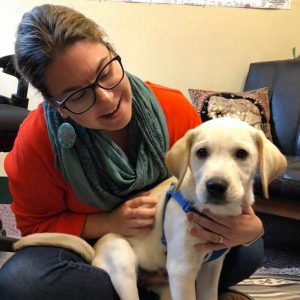
Beth Ventura
Senior Lecturer, Animal Behaviour, Cognition and Welfare Group at the University of Lincoln
What brought you to the Animal Welfare Program?
I was first attracted to the Animal Welfare Program because of its world-class reputation as a leader in animal welfare science and because of the chance to work with outstanding scientists in this field. I was also very attracted to the possibility of applying social science methods to questions about animal welfare, while remaining in an applied animal science setting.
What have you been doing since graduating from the AWP?
After graduating from the AWP I secured a teaching professor position on the faculty of Animal Science at the University of Minnesota, where for 6 years I led animal welfare teaching efforts for undergraduates in the department. In 2022, I moved to the United Kingdom to take up a Senior Lectureship role in the Animal Behaviour, Cognition, and Welfare group at the University of Lincoln. There, my role involves both teaching and research.
My research addresses the human element of animal welfare and I am especially interested in disentangling how various stakeholder groups interpret and communicate about animal welfare challenges and perceive barriers to resolution. I love teaching animal behaviour and welfare and so also study educational impacts on undergraduate, postgraduate, and veterinary student attitudes and knowledge in this area. As an animal welfare scientist with roots in applied ethology, I am also interested in a range of applied topics affecting animals on farms and zoos, including: pain assessment and mitigation for routine farm procedures, application of environmental enrichment to improve behaviour and welfare outcomes, and intersections between animal cognition and handling.
What advice would you give to students?
My advice for current students and recent graduates is to seek out every experience to work with animals, in as many contexts as possible (even if it’s not your preferred species of interest). Likewise, if you’re interested in research, connect with professors teaching classes you enjoy, and inquire as to whether they’re in need of research assistants. Get involved with research to see if you enjoy the process. Build your online profile and network and connect to as many professionals in the field as possible (LinkedIn, Twitter, etc.).